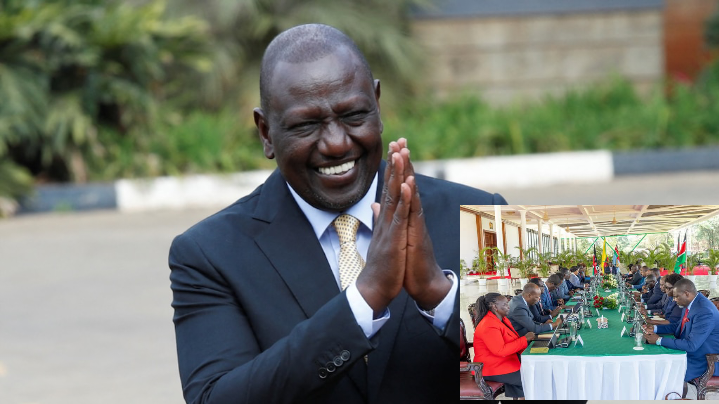Nairobi, April 29 : The Cabinet has approved the Finance Bill 2025 following a meeting chaired by President William Ruto at State House, Nairobi on Tuesday.
In a policy stance that underscores fiscal prudence and a commitment to sustainable economic management, the government is set to prioritise strengthening revenue collection measures rather than introducing new taxes.
Key provisions include streamlining tax refund processes, sealing legal gaps that delay revenue collection, and reducing tax disputes by amending the Income Tax Act, VAT Act, Excise Duty Act, and the Tax Procedures Act.
The government is signalling a clear preference for optimising existing revenue mechanisms. Instead of expanding the tax base with new levies, officials will focus on enhancing the efficiency of tax administration and ensuring greater accountability and oversight in government spending. Such measures are expected to improve revenue yield from current sources, reducing the need for tax hikes that might otherwise dampen economic activity.
The Finance Bill 2025, according to a press dispatch from the State, “focuses primarily on closing loopholes and enhancing efficiency,8 including addressing loopholes related to tax expenditures that have historically been exploited to siphon funds from public coffers, such as through inflated tax refund claims”.
“Importantly, the Bill seeks to minimize tax-raising measures. Instead, it aims to enhance tax administration efficiency through a new legislative framework,” the despatch reads in part.
“Notably, the Bill proposes critical changes to support small businesses, allowing them to fully deduct the cost of everyday tools and equipment in the year of purchase, thereby eliminating unnecessary delays in accessing tax relief.”
Retirees will benefit significantly as all gratuity payments, whether in public or private pension schemes, will now be fully tax-exempt, ensuring dignity for Kenya’s senior citizens after retirement.
Employers will also be required to automatically apply all eligible tax reliefs and exemptions when calculating Pay As You Earn (PAYE) taxes for employees.
“Currently, many employers omit these reliefs, forcing employees to seek refunds from the Kenya Revenue Authority,” the despatch adds.
“These reforms underpin the Bottom-Up Economic Transformation Agenda (BETA) and reinforce the Government’s commitment to building a stronger, more inclusive economy.”
The Cabinet also endorsed the Judges Retirement Benefits Bill, 2025 which establishes a dedicated pension and retirement benefits framework for judges of the superior courts, moving them away from the general Pensions Act and recognising the unique demands of judicial service.
It introduces a defined benefit system for serving judges and a defined contribution system for new appointees, ensuring financial security, protecting judicial independence, and aligning with broader public sector pension reforms.
“The new law provides for enhanced retirement benefits, including monthly pensions, gratuities, medical coverage, and diplomatic privileges for retired judges and their spouses, allowing them to retire with dignity after decades of service under strict ethical standards,” the despatch adds.
At the same time, the Cabinet also gave nod to the Public Finance Management (Amendment) Bill, 2024.
According to State House, this Bill mandates all County governments to establish County Emergency Funds.
This decision follows the serious gaps exposed by the 2023 El Nino rains and stems from extensive consultations and a directive issued at the 24th Ordinary Session of the Intergovernmental Budget and Economic Council (IBEC) in August 2024.
The amendment aims to equip counties with the financial readiness to respond swiftly to future emergencies, thereby protecting lives, livelihoods, and critical infrastructure.
The Cabinet also resolved to implement significant budget realignments in line with the government’s policy of fiscal consolidation and commitment to living within its means.
Cabinet Secretaries were directed to work closely with the National Treasury to identify and implement necessary adjustments within their respective ministries and State departments.
This move aims to cap the fiscal deficit at no more than 4.5% of GDP for the 2025/26 financial year, down from 5.3% in 2023/24, 5.1% in 2024/25, and with a medium-term target of reducing the deficit to 2.7%.
As a result, the initial budget estimates of Ksh4.3 trillion will undergo substantial revisions before being tabled in Parliament.
The government’s fiscal leadership has indicated that efforts will focus on improving taxpayer compliance and reducing evasion. With a more robust system in place, revenue from existing taxes is expected to grow naturally, mitigating the need for additional fiscal measures.
This strategy not only promotes a fairer tax system but also aligns with the broader economic objective of stimulating investment and growth by avoiding sudden increases in the tax burden on businesses and households.







